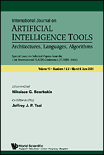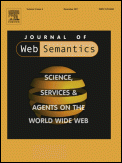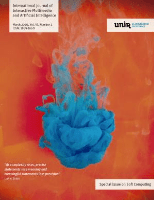
International Journal on Artificial Intelligence Tools
Scope & Guideline
Advancing AI Knowledge: A Hub for Innovative Research
Introduction
Aims and Scopes
- Artificial Intelligence and Machine Learning Techniques:
The journal publishes research that explores new algorithms, models, and techniques in AI and machine learning, focusing on their applicability in real-world problems. - Interdisciplinary Applications of AI:
Research that integrates AI with other fields such as healthcare, finance, and environmental science is a core focus, showcasing how AI can solve complex interdisciplinary challenges. - Algorithm Optimization and Performance Evaluation:
The journal emphasizes studies that optimize existing algorithms or propose new ones, along with rigorous performance evaluations to assess their effectiveness in practical scenarios. - Explainable AI and Ethical Considerations:
A significant area of interest is the development of explainable AI systems and addressing ethical implications, ensuring that AI applications are transparent and fair. - Big Data and AI Integration:
Research that investigates the intersection of big data technologies and AI, focusing on methods for data processing, analysis, and the enhancement of AI capabilities through large datasets.
Trending and Emerging
- Hybrid Learning Models:
Recent studies highlight the rise of hybrid learning models that combine various AI techniques, such as deep learning and reinforcement learning, to enhance performance in complex tasks. - Domain Adaptation and Transfer Learning:
There is a growing focus on domain adaptation and transfer learning methods, particularly in applications where data availability is limited or where models need to generalize across different contexts. - Explainable and Trustworthy AI:
Research dedicated to ensuring AI systems are explainable and trustworthy is on the rise, addressing concerns around bias, transparency, and user trust in AI technologies. - AI in Healthcare and Medical Imaging:
The application of AI in healthcare, particularly in medical imaging and diagnostics, is increasingly prominent, showcasing the potential for AI to improve patient outcomes. - AI for Environmental and Agricultural Applications:
Emerging themes include the use of AI in addressing environmental issues and optimizing agricultural practices, indicating a growing commitment to sustainability through technology.
Declining or Waning
- Traditional Rule-Based Systems:
There is a noticeable decrease in publications focused on traditional rule-based AI systems, as researchers increasingly favor data-driven and machine learning approaches. - Basic Statistical Methods in AI:
Papers that solely rely on basic statistical methods for AI applications are becoming less frequent, as more sophisticated machine learning techniques gain traction. - Overly Theoretical Frameworks:
Research that focuses heavily on theoretical frameworks without practical applications is less common, as the journal shifts towards studies with tangible real-world applicability. - Single-Domain Applications:
There is a decline in research focused on AI applications limited to a single domain, with a growing interest in interdisciplinary approaches that combine insights from multiple fields. - Conventional Data Mining Techniques:
The emphasis on conventional data mining techniques is waning, as more innovative and integrated approaches using advanced AI methodologies are preferred.
Similar Journals

Kunstliche Intelligenz
Advancing the Future of Artificial IntelligenceKünstliche Intelligenz is a premier journal dedicated to the field of Artificial Intelligence, published by Springer Heidelberg in Switzerland. With an ISSN of 0933-1875 and an E-ISSN of 1610-1987, this journal serves as a vital platform for the dissemination of cutting-edge research and innovations in AI. Recognized within the Scopus ranking as #78 out of 350 in the category of Computer Science _ Artificial Intelligence, it holds a significant place within the academic community, reflecting a 77th percentile standing in its field. The journal operates in a traditional publishing model, offering a comprehensive scope that spans major advancements and theoretical explorations in AI from 2010 to 2024. As a Q3 journal within its category for 2023, Künstliche Intelligenz is poised to foster critical dialogue and collaboration among researchers, practitioners, and students, making it an essential resource for anyone looking to stay abreast of the transformative developments in artificial intelligence.

JOURNAL OF UNIVERSAL COMPUTER SCIENCE
Exploring the boundaries of theoretical and applied computing.JOURNAL OF UNIVERSAL COMPUTER SCIENCE, published by Graz University of Technology's Institute for Information Systems and Computer Media (IICM), stands as a pivotal resource in the field of computer science. Since its inception in 1994, this Open Access Journal has fostered a culture of knowledge sharing and collaboration, allowing readers from all corners of the globe to access cutting-edge research without barriers. With an impressive convergence of studies spanning from 1996 to 2024, the journal covers a breadth of topics within Computer Science, achieving a Q3 ranking in miscellaneous areas and a Q4 ranking in theoretical computer science as of 2023. It also holds significant standing in Scopus rankings, demonstrating its influence and reach among the scientific community. The journal is particularly valuable to researchers, professionals, and students eager to explore innovative ideas and techniques that push the boundaries of computer science. Based in Austria, the journal is dedicated to maintaining high standards of scholarly integrity while promoting interdisciplinary discourse and advancements in technology.

DESIGN AUTOMATION FOR EMBEDDED SYSTEMS
Exploring Cutting-Edge Techniques in Embedded SystemsDESIGN AUTOMATION FOR EMBEDDED SYSTEMS, published by Springer, is an esteemed journal focusing on the advancements in the design automation of embedded systems. With an ISSN of 0929-5585 and an E-ISSN of 1572-8080, this journal has made significant contributions to the fields of Hardware and Architecture and Software, as reflected in its Q3 ranking within the respective categories. Since its inception in 1996 and continuing through its ongoing publications until 2024, DESIGN AUTOMATION FOR EMBEDDED SYSTEMS provides a vital platform for researchers, professionals, and students to disseminate innovative research findings, methodologies, and technological developments. Although it does not currently offer open access options, its rigorous peer-review process ensures only the most impactful studies shape the future of embedded systems design. This journal is essential for anyone looking to stay at the forefront of research and development in embedded systems design and automation.

Scalable Computing-Practice and Experience
Unlocking Potential in Scalable Computing ExperiencesScalable Computing - Practice and Experience, published by UNIV VEST TIMISOARA, stands as a significant platform for research and discourse in the realm of computer science, particularly focusing on practical applications and scalability in computing systems. Established in 2005, it aims to bridge the gap between theoretical advancements and real-world implementations, catering to a diverse readership that includes researchers, professionals, and students who are keen on exploring innovative computing practices. With an H-index reflective of its contribution and a Category Quartile of Q3 in Computer Science (miscellaneous), the journal offers a rich repository of knowledge, albeit currently not open access, from its base in Timisoara, Romania. The journal is included in Scopus rankings, underscoring its relevancy with a current rank of #144 out of 232 in the General Computer Science category, placing it in the 38th percentile. It invites contributions that expand the horizons of scalable computing methodologies and experiences, making it a vital resource for those engaged in this rapidly evolving field.

JOURNAL OF MACHINE LEARNING RESEARCH
Pioneering Insights in Artificial Intelligence and BeyondJOURNAL OF MACHINE LEARNING RESEARCH, published by MICROTOME PUBL, stands as a premier journal in the realms of Artificial Intelligence, Control and Systems Engineering, Software, and Statistics and Probability. With an impressive Q1 ranking across multiple categories and a prominent Scopus ranking that places it among the top journals in its field—ranked 1st in Mathematics and 20th in both Artificial Intelligence and Software—this journal serves as a vital resource for cutting-edge research and advancements in machine learning. Established in 2001, it has been committed to disseminating high-quality research findings and innovative methodologies, addressing the evolving challenges and opportunities in machine learning. Furthermore, the journal maintains a rigorous peer-review process, ensuring that only the most significant contributions are published. With open access options available and a strong user-friendly platform, it invites researchers, professionals, and students to engage deeply with the pioneering work in the field.

Frontiers in Artificial Intelligence
Advancing Knowledge in Artificial IntelligenceFrontiers in Artificial Intelligence, published by FRONTIERS MEDIA SA, is a pioneering open-access journal that commenced in 2018, dedicated to advancing the multifaceted field of artificial intelligence. With an impressive Q2 ranking in the category of Artificial Intelligence, it occupies a significant position within the academic community, offering a platform for high-quality, peer-reviewed research. The journal's comprehensive scope encompasses a variety of subfields, including machine learning, robotics, and human-computer interaction, making it an invaluable resource for researchers, professionals, and students alike. As an open-access journal since 2019, it ensures that cutting-edge research is readily available to a global audience, facilitating knowledge sharing and collaboration. With its headquarters in Switzerland and a commitment to scholarly excellence, Frontiers in Artificial Intelligence is at the forefront of the scientific discourse, empowering the next generation of innovations in AI.

Journal of Web Semantics
Advancing the Future of Web Usability and Data Integration.Journal of Web Semantics, published by ELSEVIER, stands at the forefront of interdisciplinary research in the realms of Computer Networks and Communications, Human-Computer Interaction, and Software Engineering. With an impressive impact on the academic landscape, this journal holds a significant Q2 quartile ranking in multiple fields as of 2023, reflecting its strategic positioning within the top tier of scientific journals. As a valuable resource for researchers, professionals, and students, it provides a platform for innovative articles addressing contemporary challenges and advancements in web semantics—a crucial aspect of improving web usability and data integration. Operating with a Scopus Rank that places it in the commendable 71st, 67th, and 60th percentiles across its respective categories, the journal facilitates access to high-quality research findings, fostering a vibrant community of scholars dedicated to enhancing the synergy between technology and human interaction. The Journal of Web Semantics continues to evolve, marking its significance from 2003 to 2024 and offering a vital space for discourse that shapes the future of web technologies.

Progress in Artificial Intelligence
Driving Breakthroughs in Intelligent SystemsProgress in Artificial Intelligence is a leading journal published by SpringerNature, dedicated to advancing knowledge and research in the field of artificial intelligence. With a strong emphasis on the latest developments from 2012 through 2024, this journal enjoys a prominent position, holding a Q2 ranking in the prestigious Artificial Intelligence category for 2023, as well as achieving an impressive ranking of 64 out of 350 in the Computer Science - Artificial Intelligence category on Scopus, placing it in the 81st percentile. Progress in Artificial Intelligence serves as an essential platform for researchers, professionals, and students seeking to share innovative algorithms, applications, and theoretical advancements. Although it operates under a subscription model, its commitment to disseminating high-quality research and fostering collaboration in the AI community significantly contributes to the ongoing evolution of this exciting discipline.

International Journal of Interactive Multimedia and Artificial Intelligence
Navigating the Frontiers of Artificial Intelligence and MultimediaThe International Journal of Interactive Multimedia and Artificial Intelligence, published by UNIV INT RIOJA-UNIR in Spain, is a leading Open Access journal that has been fostering knowledge dissemination in the field since 2008. With an ISSN of 1989-1660 and an impressive impact characterized by its Q1 and Q2 rankings across major categories in Artificial Intelligence and Computer Science, the journal serves as a crucial platform for researchers and professionals eager to explore innovative applications and technological advancements. This journal is particularly distinguished by its commitment to high-quality peer-reviewed research, evident in its current Scopus rankings, which place it among the top percentile in various computer science domains, including Statistics, Signal Processing, and Computer Vision. The journal's scope encompasses a wide array of topics that intersect with multimedia and artificial intelligence, making it an invaluable resource for students and emerging scholars aiming to deepen their understanding and contribute to these vibrant fields. Through its Open Access model, it ensures that research is accessible to a global audience, thus enhancing the visibility and impact of the scientific discourse.

MACHINE LEARNING
Empowering Researchers to Transform Ideas into ImpactMACHINE LEARNING is a premier academic journal published by SPRINGER, dedicated to advancing the field of artificial intelligence and software engineering. Established in 1986, this journal has consistently showcased pioneering research and innovative methodologies that facilitate the understanding and application of machine learning techniques across various domains. With an impressive impact factor reflecting its high-quality publications, it is classified within the top quartile (Q1) in both Artificial Intelligence and Software categories as of 2023, underscoring its critical role in these fields. The journal boasts significant Scopus rankings, placing it at the 45th and 54th positions, respectively, in Computer Science - Software and Computer Science - Artificial Intelligence, further validating its stature as a vital resource for researchers, professionals, and students alike. While not an open-access journal, MACHINE LEARNING ensures that its comprehensive peer-reviewed articles are widely circulated, fostering academic dialogue and innovation. The journal continues to be a go-to platform for cutting-edge research, providing invaluable insights and contributions that drive the future of machine learning.